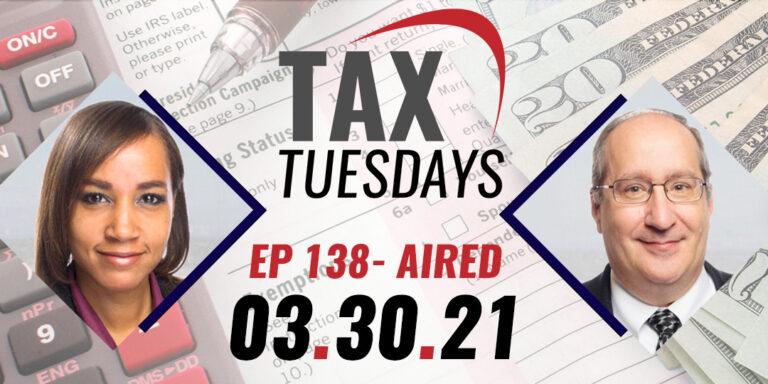In this episode of Toni Talks, enrolled agent (EA) Toni Covey is joined by special guests Eliot Thomas, Esq. and Troy Butler, Bookkeeping Manager at Anderson, to break down the best entity structures for flipping, wholesaling, and rental real estate.
Updated November 3, 2020
Real estate investing is not a one-size-fits-all activity. There are multiple different ways to invest in real estate, running the gamut from hands-on, active income to hands-off, passive income. Three of the most common real estate investing activities I see our clients engage in are flipping, wholesaling, and holding (renting) real estate. So, let’s talk about the different structuring options for each.
Flipping Real Estate
Flipping real estate is considered active income, and all active income is subject to self-employment (SE) taxes that currently amount to 15.3%. This added tax burden is important to consider when selecting the best entity structure for a flipping business.
Additionally, flipping real estate is a liability magnet. Flipping a property inherently means having lots of different third parties working on the property, so another major component of selecting the right entity structure is mitigating that liability as much as possible.
Entity Structures for Flipping Real Estate
Right off the bat, when a client tells me they flip real estate, my first thought is that they need a traditional C-corporation. A C-corp. works well in this scenario because it mitigates both the tax liability of self-employment taxes and the inherent liability of having contractors and other third parties working on a piece of property.
Firstly, using a C-corporation for flipping will eliminate the additional 15.3% self-employment taxes. Moreover, a C-corporation protects your personal assets when you’re doing a flip because everything happens in the corporation’s name, not your personal name. This means that, if something were to happen, a lawsuit could only go after the corporation’s assets, not your personal assets.
Dealer Status
Now, I’ve already touched on the liability concerns of flipping in your own name. But what about the tax side of things?
Not only do you want to use entities to protect yourself from the massive liability that goes along with flipping properties, but you also want to use entities to avoid being tagged as a “dealer” by the IRS, also called dealer status.
If you’re tagged as a dealer by the IRS, this means that the items you sell are no longer considered capital assets. Instead, they’re considered inventory. As a dealer, your income from flips will also be considered ordinary income, which means it’s subject to income taxes at your normal tax bracket and self-employment taxes of 15.3%. It also eliminates the option of considering the proceeds from the flip capital gains.
Furthermore, you lose significant tax benefits if you’re tagged as a real estate dealer. With dealer status, you cannot take depreciation on real estate. What’s more, you also lose the ability to recognize installment sales.
Multiple Flips Need Multiple Entities
If you plan on doing more than one flip, the best entity structure from an asset protection standpoint involves using multiple entities. As a general rule, you don’t want to have more than one project in the same entity. This separation provides greater asset protection.
If you’re doing multiple flips, each project should be held in its own limited liability company (LLC). These LLCs should then be disregarded to your C-corporation. This sequesters the liability of each project to only that project.
If you decided to save some money and not create separate LLCs for each flip and instead do everything under the same entity, watch out. If something happens in one of the properties, a lawsuit could wipe out everything held in that entity. That’s why you want only one property or flip per entity. This ensures that all the money you’ve invested in your projects isn’t at risk if something happens in just one.
C-Corps vs. S-Corps for Flippers
I frequently receive questions from clients about how to pay themselves a salary from their C-corporation. With a C-corp, you’ll use payroll or a dividend ratio, but note that dividend distributions from a C-corp will face double taxation.
There are certainly ways to avoid this. Some common strategies to get around double taxation with C-corps includes using qualified retirement plans, corporate deductions and reimbursements, as well as Section 280A meetings. But what if you wanted to go a step further and make an “S” election for your corporation?
Flippers who make an S election for their corporations can reduce their self-employment tax liability by half. With an S-corporation, there are two options for income streams to the owner/shareholder: W-2 wages via payroll, and distributions. With an S-corp, you only owe SE taxes on the wages, not the distributions. You’ll still pay income tax — you can’t get around that — but you’ll cut your SE taxes in half.
Rental Real Estate
Rental real estate (buy-and-hold real estate) is a horse of a different color. When it comes to rental real estate, your intent is incredibly important to the IRS.
If you purchase a property with the intent to sell it, it doesn’t matter how long you hold it. If you purchased with the intent to sell, it’s considered inventory and, therefore, will be treated as ordinary income when you sell it.
If you purchase a property with the intent to hold it, however, now it’s going to be treated differently by the IRS. Buy-and-hold real estate is considered a capital asset.
Tax Benefits of Rental Real Estate
Depreciation
Since rental real estate is considered a capital asset and not inventory, that means you have access to a wide range of tax benefits, including depreciation. Over a period of 27 and a half years, you can depreciate the property. This includes your purchase price for the property, which is your basis, and any improvements you make to the property before you rent it out will be added to that basis.
Once you’ve rented a property out and begin to make repairs or improvements, they must be analyzed to determine whether the cost of those repairs/improvements has to be added to the basis or can be taken as a deduction. For repairs less than $2,500, you can straight deduct it as a repair expense. If the cost is more than $2,500, it must be evaluated on an individual basis. Things like paint and carpet can be deducted right away; things like roof and sidewalk repairs are treated differently and have “useful lives” as well.
Cost Segregation
If the cost is added to the basis instead of deducted as an expense, that doesn’t necessarily mean that you have to depreciate that cost over 27.5 years. Cost segregation is a powerful tax tool that can be used to accelerate that depreciation. You don’t add any more to the depreciation — it’s only your purchase price plus improvements — but cost segregation makes it happen faster.
With cost segregation, you evaluate each component of a piece of property on an item-by-item basis instead of depreciating the entire property over 27.5 years. Individual items have different “useful lives,” which determines how long the property is useful. Cost segregation allows you to take five-year property (for instance) and depreciate it over five years instead of 27.5.
Entity Structures for Rental Real Estate
Although there may not be as many third parties on the property as in a flipping situation, holding rental real estate is very much a liability-fraught endeavor. Just as with real estate flips, we’ll still want to hold our rental real estate inside an LLC to allow that asset protection.
Although you may have heard about the benefits of forming an LLC for rental real estate in Nevada, Wyoming, or Delaware, you’re actually going to want to form the LLC in the same state as the property itself. To add in an additional layer of asset protection, you can actually have your state-specific LLC owned by a Wyoming holding company. For instance, if you own rental property in Texas, you’ll create a Texas LLC to hold the property itself, then the Texas LLC will be wholly owned and disregarded to a Wyoming LLC.
Wholesaling Real Estate
Entity Structures for Wholesaling Real Estate
Wholesaling real estate involves finding great deals without actually buying, improving, or holding the property yourself. Instead, you take the deal to your network of investors and connect the right investor to the deal. So, as a wholesaler, you put the property under contract, then use your due diligence period to find a buyer for the property.
Sometimes, the contract specifically states that it cannot be assigned. To avoid the seller restricting your right to assign the contract, we like to use a wholesale trust. The strategy here is to put the property under contract in the wholesale trust, then assign the beneficial interest in that trust instead of actually assigning the contract.
Real Estate Bookkeeping
Whether you fix and flip, buy and hold, or wholesale, you’ll need to keep detailed books and records. Ideally, each individual LLC will have its own bank account and set of books.
It’s possible to have one set of books and one bank account only for the parent entity, but in this case, it’s critical to keep each property separate and classed out individually.
The Takeaway
When it comes to entity structuring for real estate investing, there are a lot of nuances to consider. Overall, there simply is no one-size-fits-all asset protection structure for real estate. Everything should be individually customized to your unique situation, goals, and activities.
If you’re interested in speaking with a certified advisor to learn about the best entity structure for your individual situation, schedule a complimentary Strategy Session today. On the call, you and an experienced Senior Advisor will build a custom entity structure tailor-made to your investing situation and goals. There’s no cost and no obligation, just high-quality guidance from advisors you can trust. You can schedule online or by calling 888.871.8535.
Free Strategy Session with an Anderson Advisor
Receive a detailed risk assessment to assist in lowering problem areas that could wipe out all of your assets with one wrong move. Speak with an Anderson Professional Advisor to get your FREE Strategy Session.
Limited-Time Offer: ($750 value.)









